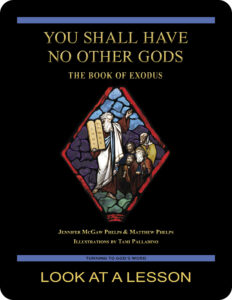set apart
 In his Letter to the Galatians 1:15 (NABRE), Paul describes his call to ministry: “But when [God], who from my mother’s womb had set me apart and called me through his grace….” From this passage, it is clear that Paul views himself as having a special mission from God. It’s probable, however, that he meant more than the Greek text conveys.
In his Letter to the Galatians 1:15 (NABRE), Paul describes his call to ministry: “But when [God], who from my mother’s womb had set me apart and called me through his grace….” From this passage, it is clear that Paul views himself as having a special mission from God. It’s probable, however, that he meant more than the Greek text conveys.
The Greek word that here is translated as set apart is ἀφορίζω (aphorizo), and it carries essentially the same meaning we think of today by set apart. This Greek word had both positive and negative connotations. Something could be set apart as being especially good or set apart because it was bad. Things also could be set apart in terms of boundaries or other separation.
The Hebrew word that means set apart, קָדַשׁ (qadash), by contrast, has a significantly different connotation. This word, though it could mean set apart, also means consecrated and even holy.
In the midst of a passage in which Paul is describing his Jewish background and origin, which meaning seems more likely? What do you think that Paul actually is trying to convey about what God had in mind for him?
related topics: holy; perfect; sacred
you also may like our study of the book of Exodus
 You Shall Have No Other Gods: The Book of Exodus, a 28-lesson Catholic Bible study with an imprimatur, provides an in-depth look at how significant events in biblical history that occurred thousands of years ago to descendants of Jacob remain relevant and even critical for present-day Christians to understand. The deliverance of the Hebrews from slavery in Egypt and the giving of Ten Commandments are examined along with the development of Moses’ relationship to God. Click on the book’s cover to view a sample lesson.
You Shall Have No Other Gods: The Book of Exodus, a 28-lesson Catholic Bible study with an imprimatur, provides an in-depth look at how significant events in biblical history that occurred thousands of years ago to descendants of Jacob remain relevant and even critical for present-day Christians to understand. The deliverance of the Hebrews from slavery in Egypt and the giving of Ten Commandments are examined along with the development of Moses’ relationship to God. Click on the book’s cover to view a sample lesson.
 Click on the picture of the statue of Moses with horns (above) to learn more about Lost in Translation. A new entry is archived each Monday. Contact us to receive Lost in Translation by email every week. You may use any of the contact links on our website to ask Matthew a question.
Click on the picture of the statue of Moses with horns (above) to learn more about Lost in Translation. A new entry is archived each Monday. Contact us to receive Lost in Translation by email every week. You may use any of the contact links on our website to ask Matthew a question.
